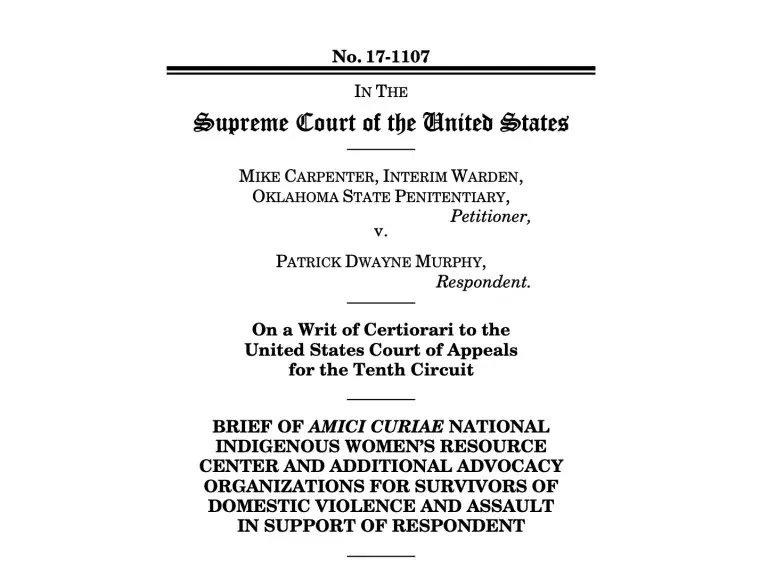
On June 27, 2019, the final day of its term, the U.S. Supreme Court unexpectedly failed to issue a decision in Carpenter v. Murphy. Many consider Murphy one of the Court’s most consequential and closely-watched Indian law cases in recent history. It also stands as the oldest case on the Court’s docket without a decision, surpassing the 200 days taken to resolve Dollar General Corporation v. Mississippi Band of Choctaw Indians.
The Court will rehear the case next term.
The case involved a murder within the State of Oklahoma. Both the defendant and his victim were enrolled members of the Muscogee Creek Nation. At issue was where the murder occurred and who had jurisdiction to prosecute Murphy for that crime. Convicted of first-degree murder and sentenced to death in an Oklahoma state court, Murphy appealed unsuccessfully in state and federal district courts arguing that because the crime occurred within the boundaries of the treaty-established Muscogee Creek Reservation his case should not have been tried in state court.
In 2017 the Tenth Circuit Court of Appeals eventually agreed holding that Congress had not shown explicit intent or language to disestablish the Muscogee Creek Reservation, ruling that Oklahoma did not have jurisdiction to prosecute Murphy for the crime because it occurred in Indian country. Murphy’s death sentence was vacated. The State of Oklahoma appealed the decision to the U.S. Supreme Court, which agreed to review whether Congress disestablished the Muscogee Creek Nation’s reservation and whether the state had jurisdiction to prosecute Murphy for this crime.
The Court’s decision could have significant implications for the Muscogee Creek Nation and other Indian nations in Oklahoma, including those wanting to use the expanded tribal criminal jurisdiction provisions authorized in the 2013 Violence Against Women Act to provide safety to their women. This is so because the restored tribal criminal jurisdiction in VAWA is contingent on the acts of domestic violence or dating violence against Native women occurring in Indian country. The Center was part of the team bringing the Court’s attention to how the case will impact Indian nations in Oklahoma and throughout the United States seeking to protect their women and children from domestic violence and dating violence within Indian country.
Read the amicus brief: Amici Curiae of National Indigenous Women’s Resource Center and Additional Advocacy Organizations for Survivors of Domestic Violence and Assault in Support of Respondent
